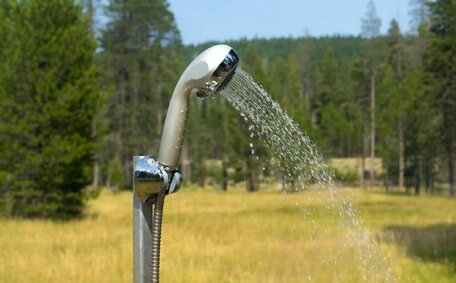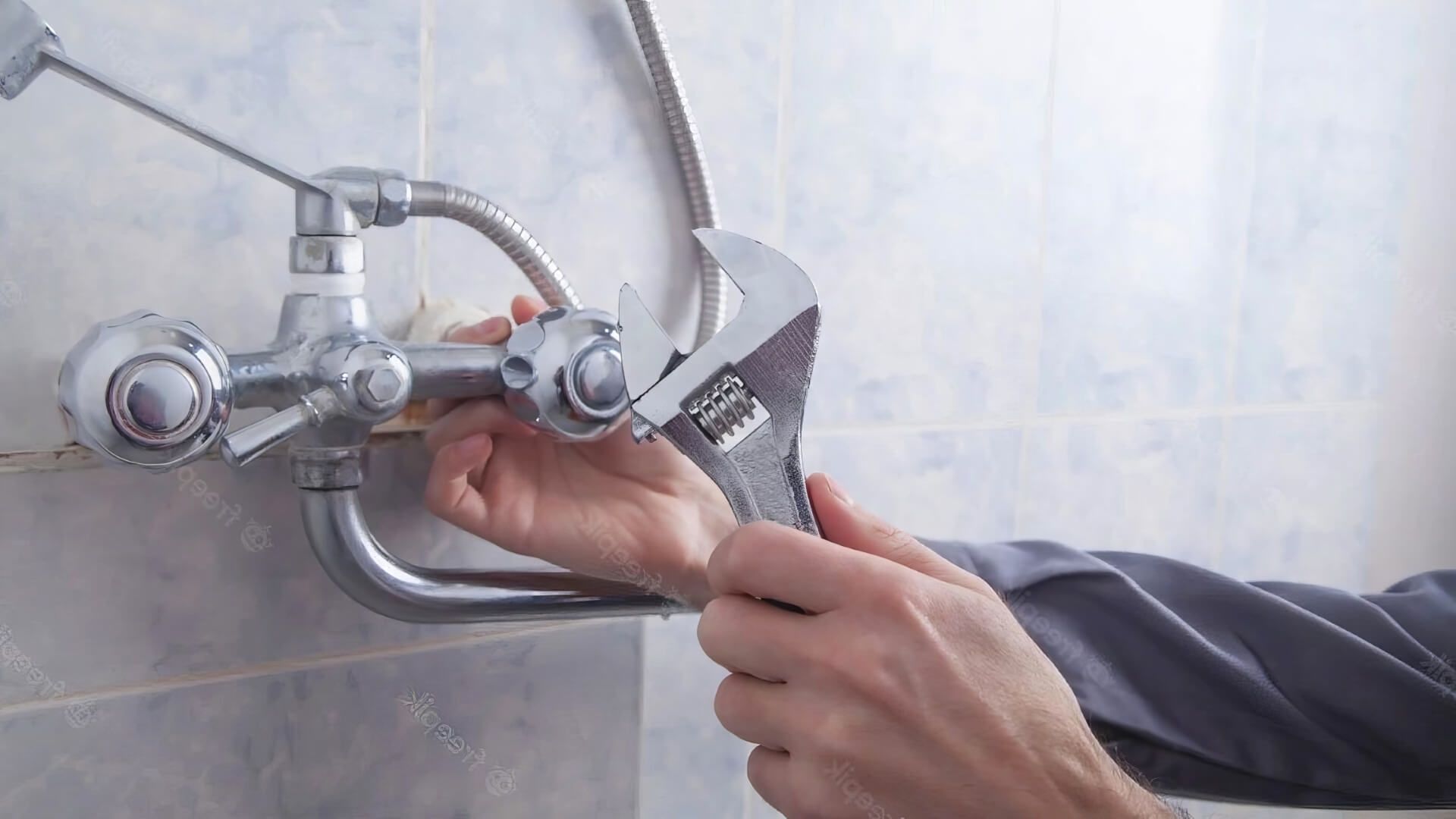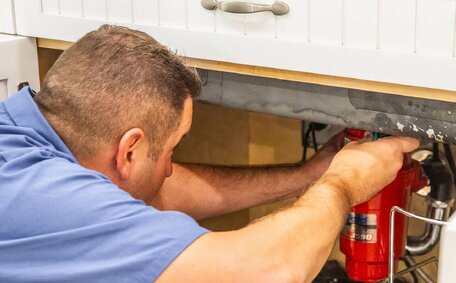What causes drains to get blocked?
Some of the most common causes of blocked drains, often leading to significant blockages include:
- Buildup of soap residue, hair, and food particles can gradually obstruct drains.
- Invasive tree roots can severely disrupt plumbing systems.
- Flushing inappropriate items like baby wipes and excessive toilet paper can lead to blocked toilet drains.
- Small objects accidentally entering kitchen sink pipes can cause substantial blockages.
Simple blockages can often be remedied with DIY techniques, such as using a plunger or natural cleaners, but complex ones may require professional intervention for complete resolution. Drain clearing is crucial for troublesome issues in your sinks, showers, or toilets, and should be addressed swiftly to prevent back up which could cause significant harm.
Signs you have a blocked drain
Certain signs indicate an immediate need to address drain blockages:
- Water draining very slowly or not at all
- Disconcerting gurgling sounds emerging from your conduits
- Foul sewage smells emanating from sinks or toilets
- The water level pooling around floor drains
- Toilets, showers, or bathtubs backing up with water
Promptly addressing these issues can prevent costly damage and help in unblocking drains effectively. While minor blockages may sometimes clear on their own, persistent issues often present signs of a blocked drain, requiring professional services for effective clearing.
When to call a professional plumber
Contact a plumber such as Penrith Plumbing for persistently blocked drains not resolved by DIY approaches. or if you notice signs of serious blockages, including:
- Multiple plumbing fixtures backing up or overflowing
- Sewage odours or drain gurgling noises emanating from your outside drain
- Standing water not draining outdoors or around floors drains
- Persistent slow drainage issues over several days
- Damage like collapsed pipes or misaligned joints
Our certified plumbers possess the potent drain cleaning machinery, CCTV cameras for drain pipe surveys, and the know-how to properly tackle drains can be blocked with stubborn clogs. If in doubt, contact Penrith Plumbing at 1300 349 338 for an inspection and specialised solutions for your Penrith or Sydney area plumbing concerns.
DIY methods to try unblocking a drain
There are several DIY methods you can learn about how to clear a blocked drain before calling a professional:
- Using a plunger: Cover overflow holes with a damp cloth and rapidly move the plunger up and down 10-15 times to dislodge clogs.
- Baking soda vinegar solution - Pour cup of baking soda directly into your drain, followed by a pour of nearly boiling vinegar, then seal the drain for 5-10 minutes before putting down water that’s hot.
- Boiling water: Gradually pour boiling water down the drain to dissolve grease and soap residue.
- Drain auger - Employ a hand-crank drain auger, one of the most reliable tools for removing what’s causing blockage, such as hair, debris, and scraps lodged deeper in pipes.
Before attempting DIY drain cleaning, shut off the water, don protective gloves and eyewear, and refrain from using harsh chemicals that might harm your pipes. When DIY methods fall short, try using a professional plumbing service to properly diagnose and clear the issue.
Using a plunger
Here are the key steps to unblock drain issues on your own:
- First, can use a wet rag or towel to seal off any overflow holes in your sink or tub. This helps create suction.
- Firmly position the plunger over the drain and press down to create a secure, airtight seal with the rubber cup.
- Vigorously work the plunger up and down 10-15 times to dislodge the clog, followed by flushing with hot water to clear the drain.
- Repeat the plunging process if needed until water starts draining freely. It often takes persistence to get results.
- Flushing with boiling water after plunging can help eliminate any remaining debris and clear blockages.
A well-sealed plunger can efficiently tackle blocked drains, dislodging accumulations such as hair, soap remains, and food debris. Exercise caution to avoid scratching your sink or damaging pipes during forceful plunging. Should DIY efforts fall short, it’s time call in skilful drain cleaners to restore water flow.
Baking soda and vinegar treatment
Employing baking soda and vinegar is a nature-friendly mechanism to pulverise and resolve how clear blocked drain snags. Follow these steps:
- Pour a cup of baking soda down the affected drain.
- Let the baking soda settle into drain for a few minutes.
- Next, pour down 1 cup of heated white vinegar into the drain.
- The vinegar reacts with baking soda, creating fizz that helps dislodge grease, hair, and soap scum, followed by a hot water flush.
- Cover or plug the drain and let the mixture sit for a few minutes, then allow it to work to break up the clog.
- After 5-10 minutes, pour a kettle of hot or cold water down the drain to help rinse away debris.
- Repeat as needed until water is draining freely.
The fusion of baking soda, vinegar, and hot water can cause a reaction that helps dissolve many typical clogs without harsh chemicals. Always prioritise safety by wearing gloves and avoiding splash back when pouring substances down the drain. Contact a professional plumber if this method fails to get your drain working again.
Boiling water
A kettle of boiling water down the drain can dissolve and displace grease clogs. Boiling water can aid in clearing blocked drains but may be insufficient for severe clogs – consider combining it with a plunger, drain snake, or baking soda treatment.
However, exercise caution with boiling water as it can damage PVC piping.
To safely use boiling water for clearing drains, follow these steps:
- Boil a kettle of water and get ready to carefully pour it down the drain.
- Carefully pour the freshly boiled water slowly down the blocked drain.
- Allow it to settle momentarily, giving the hot water ample time to break down water-resistant grease accumulations.
- Flush with more hot water to rinse debris. Repeat if needed.
Do not use boiling water on PVC pipes to prevent potential damage to your plumbing system. Seek professional drain cleaning assistance if boiling water fails to get your drain working again properly.
Drain snakes/augers
Drain snakes, or augers, can be potent DIY tools for handling stubborn clogs coming your way that causes blocked pipes, unreachable by conventional plungers.
A drain snake is a long, flexible cable coil you can do on your own by feeding down the drain to physically dislodge and pull up debris like hair, grease, food scraps and more out of pipes.
Follow these key steps when using a drain snake:
- Carefully insert the snake end 6-10 inches into the drain opening and crank the handle to advance it further through bends.
- Crank slowly and gently once resistance is felt to avoid scratching pipes as you work the clog free.
- As you withdraw the snake, rotate it to wind up and remove the debris until the drain is clear.
- Clean off any material and repeat as needed until water flows freely.
If you’re pondering 'What do I do when the drain snake won’t go any further?', it’s essential to sidestep exerting undue force to avert damage to the pipes. When facing severe obstructions, you may wonder, 'How do I proceed?' In such cases, seek professional drain cleaning help for issues you can’t clear or if there are damaged pipes involved.
Advanced techniques professionals use
Professional plumbers utilise advanced equipment to clear severe blockages beyond the scope of DIY methods. This includes:
- Water jetter - Professionals use high-powered hydro jetting machines that propel water up to 3,500 PSI, effectively scouring pipes. This is excellent for removing years of buildup or clearing fully blocked drains.
- Pipe relining - Trenchless pipe relining essentially creates new pipe walls inside the old piping without digging. This fixes damage and realigns pipes.
- Drain camera inspections - Plumbers use specialized drain cameras to assess drain lines and pinpoint blockages. This helps diagnose issues precisely.
At Penrith Plumbing, Our team has the latest drain cleaning tools and expertise to address stubborn clogs and assess your drainage system thoroughly.
We can provide camera inspections to diagnose issues and recommend appropriate solutions, including pipe repairs if needed. Contact us on 1300 349 338 for professional assistance getting your blocked Penrith area drains or pipes working properly again.
Hydro jetting
Professional plumbers, including Penrith Plumbing, effectively resolve severe clogs with advanced hydro jetting techniques. Specialist hydro jetting equipment generates up to 5,000 PSI to blast away years of accumulated grease, soap residue, tree roots and other debris.
It involves firing a highly pressurised stream of water through pipes to scour the walls.
Hydro jetting is an eco-friendly and effective way to maintain drains and sewer lines, and deal with blockage in your pipes. It can penetrate blockages that drain snakes can’t reach. Hydro jetting cleans the entire circumference of pipes, which is why it’s effective at leaving them clear and smooth.
Contact Penrith Plumbing on 1300 349 338 regarding hydro jetting services for persistent clogs in your sewer at your Penrith home or business. Our technicians can inspect the full extent of the blockage before providing this powerful cleaning solution.
Pipe relining
Pipe relining is an advanced, trenchless method of repairing damaged drainage pipes without excavation. First, plumbers use CCTV cameras to thoroughly inspect the pipes and identify any cracks, misalignments, root intrusion or other faults. Next, a resin-saturated liner is fed through the pipe and expanded, sealing and smoothing the inner walls.
It essentially creates new pipe walls inside the old piping. As the liner cures, it forms a durable, jointless new inner pipe.
The benefits of pipe relining include:
- No digging or destruction to floors, driveways or landscaping
- Reduced disruption compared to traditional pipe replacement methods.
- Long lasting repairs that prevent root damage and soil infiltration
- Restoration of flow capacity and hydraulic efficiency in drainage systems.
At Penrith Plumbing, we have extensive expertise with pipe relining and regularly use this trenchless technique to repair damaged drains and sewer lines across Penrith and Sydney. Contact us to learn more about these services.
CCTV drain inspections
CCTV drain inspections entail dispatching a diminutive camera device inside your pipes and drains to conduct a comprehensive condition check. At Penrith Plumbing, we use state-of-the-art drain cameras to locate blockages and diagnose issues. Key benefits of CCTV drain inspections include identifying causes of blocked drains:
- Precisely pinpointing obstructions
- Assessing pipe damage or faults
- Mapping full drainage layouts
- Identifying causes of drainage issues
- Supporting preventative maintenance
- Avoiding unnecessary excavations
Our drain cameras can traverse multiple bends and extend over 100+ feet to inspect your sink drain, bathtubs, laundries, outdoor drains, and sewer lines.
We can even inspect connections between stormwater and sewage systems. CCTV inspections are essential before undertaking pipe relining or other repairs. Contact Penrith Plumbing to schedule CCTV drain inspections.
How long drain unblocking takes
The duration needed for addressing drain unblocking can vary, affecting how much does the service cost, depending on the severity and location of the clog. Minor sink clogs may take only 5-10 minutes to clear using a plunger or boiling water, which much does cost significantly less than professional services.
More severe laundry or tub drain blockages can take 30-60 minutes for DIY methods like augers or baking soda/vinegar to work through. However, completely blocked or backed up pipes may require professional hydro jetting, which involves 1-2 plumbers working 1-2 hours to pressure clean the drains.
Certain factors also impact drain unblocking duration:
- Number of fixtures affected - It is quicker to use your skills to clear one sink line than multiple backed up drains
- Pipe length and complexity - Long pipes with more bends take longer to snake and jet clear
- Nature of blockage - Years of accumulation like soap or grease takes more effort than a recent clog from food scraps or baby wipes
The average time to clear a drain line ranges from a few minutes for a simple DIY sink fix to a full day project for professionals to hydro jet residential sewer piping. Persistent drain issues in your house should be inspected so you can get an accurate diagnosis for clearing a blocked drain. Contact Penrith Plumbing to schedule professional drain assessments when needed.
Preventing future blockages
There are several key steps you can take to help prevent future drain blockages:
- Install drain screens/strainers in sinks, tubs, and floor drains to catch hair and debris before it becomes waste water in your pipes
- Minimise pouring fats, oils, and grease down sinks to prevent blockages as these substances solidify.
- Only flush toilet paper and human waste, no baby wipes or other items, to avoid sewer system issues
- Regularly use drain maintaining products such as Penrith Plumbing’s BioDrain service.
- Have drains professionally inspected and annually clean out any built up gunk or blockages
Taking preventative measures can ensure your drains stay clear of future blockages, keeping them flowing properly long-term. Contact Penrith Plumbing on 1300 349 338 regarding regular maintenance services or our BioDrain microbial drain cleaner to help avoid recurring issues.






